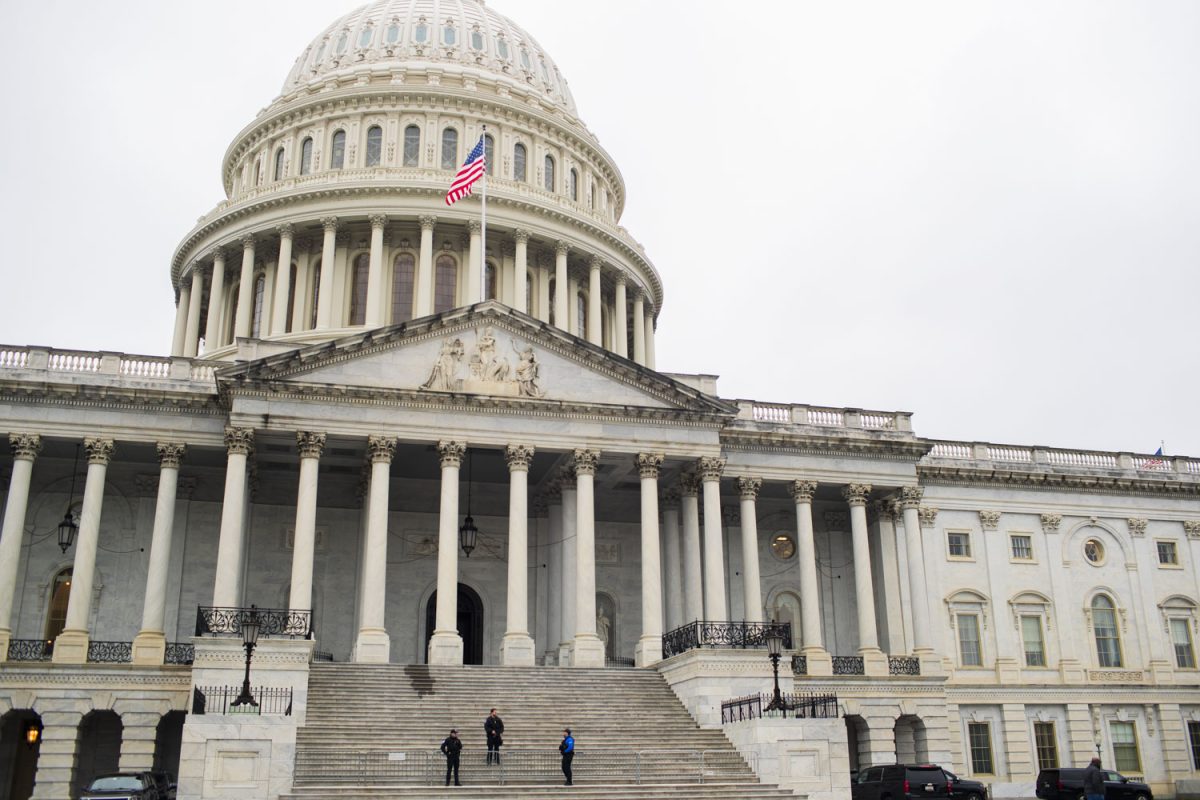U.S. Sen. Chuck Grassley, R-Iowa, opposes President Donald Trump’s use of tariffs and has introduced a bill that would require any tariff to be approved within 60 days by Congress or be removed.
Iowa Republicans U.S. Sen. Joni Ernst and U.S. Rep. Mariannette Miller-Meeks said they believe tariffs will help balance unfair trade practices by other countries.
Trump placed an across-the-board 10 percent tariff or tax on imports and additional tariffs based on the U.S.’s trade deficit with that country, on April 2 — on top of tariffs already placed on Mexico and Canada.
Shortly after his announcements, stock markets began to fall and have fallen ever since, causing economists to warn a recession could result from Trump’s tariffs.
Stock selloffs and fear on Wall Street haven’t been this high since 2020 during the start of the COVID-19 shutdown.
A day after Trump announced these tariffs, Grassley introduced a bipartisan bill to restore Congress’ constitutionally authorized role in setting and approving U.S. trade policy.
Grassley’s bill, dubbed The Trade Review Act of 2025, would require the president to notify Congress within 48 hours of enacting tariffs and require congressional approval within 60 days.
Grassley said the Congress in 1963 and 1974 delegated too much of their power away when they allowed presidents to have tariff authority under economic emergencies.
According to a report from Politico, Trump said in a memo to Congress on Monday that he would veto the bill if passed. Grassley said any president would say that since they want to protect their powers.
“They selfishly protect this power, whether they get it from the Constitution or whether they get it handed to them from the Congress of the United States,” Grassley said in an interview with The Daily Iowan. “We got to recoup some of this power to Congress and overcome the mistakes that were made in ‘63 and ‘74.”
Grassley attempted a similar move in 2019 when Trump’s tariffs were harming farmers’ pocketbooks due to a trade war with China. However, that effort failed.
“When tariffs come up, just like they did in 2018, I tried to get something done to recoup this power to the Congress of the United States — I failed,” Grassley said. “Obviously, I didn’t do anything on it between then and now because who cares about tariffs, but the president has elevated this. [It] gives me a chance to bring to the country’s attention the fact that Congress has delegated too much authority.”
Ernst said tariffs are necessary to balance the trade deficit the U.S. has with these other countries.
“We have become so complacent with other countries putting tariffs on our own, we need to come back to the table with those countries,” Ernst said in an interview with The Daily Iowan. “And I think this has been a wake-up call to so many other countries that have had tariffs against the United States for decades.”
Ernst said Trump’s focus on tariffs and his reciprocal tariffs give the U.S. a chance to rectify the trade imbalance.
“Hopefully, we will see those discussions be fruitful, and then perhaps in the future, it’s not something we’ll need to worry about,” Ernst said.
Miller-Meeks said the tariffs will help bring back manufacturing jobs to the U.S. that were lost after the implementation of the North American Free Trade Agreement, which was adopted under former President Bill Clinton in 1994.
RELATED: DITV: Trump Imposed a Widespread Tariff on all Countries
The agreement allows duty-free trade between the U.S., Mexico, and Canada. Trump renegotiated the treaty and signed the U.S.-Mexico-Canada Agreement in 2020.
“It’s a real-life thing that hurts people when jobs move overseas, when companies relocate overseas, because either less labor market, or what China does is skirts around other countries to avoid tariffs or trade limitations,” Miller-Meeks said in an interview with The Daily Iowan.
Miller-Meeks said the Trump administration is also working to get new markets for American farmers by sending U.S. Department of Agriculture Secretary Brooke Rollins on trade missions.
“After four years of no movement on trade at all, Secretary Rollins is going to six countries in six months looking at trying to establish trade practices,” Miller-Meeks said. “New markets for farmers are just as important as any effect that the tariffs may have.”
Miller-Meeks acknowledged that there is volatility in the stock market over the tariffs, and people are seeing real losses, but that eventually it will balance trade practices.
“Certainly, you would expect when you have changes to the infrastructure that there is going to be a reaction in the stock market,” Miller-Meeks said. “If you’re not selling, you haven’t lost. So, there are paper losses. There are real losses that you know people perceive. It creates a great deal of anxiety. But people also know that we need to have fair trade as well as free trade, but it has to be trade that is also fair to those in the United States.”



